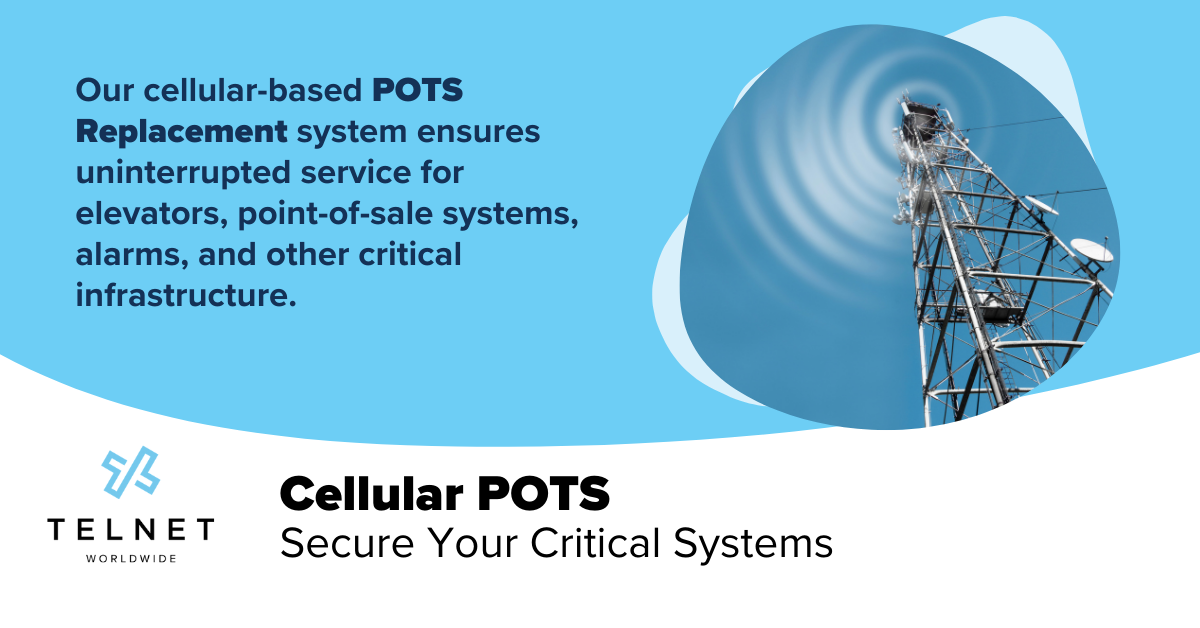According to MarketWatch, VoIP is expected to reach a market size of 55 billion dollars by 2025. And it’s no surprise; VoIP offers many benefits for businesses, including cutting expenses and increasing productivity.
VoIP (Voice over Internet Protocol) is a form of IP voice communication that allows you to make and receive calls over an internet protocol. Simply put, VoIP is the next evolution of telephony from a Plain Old Telephone System or POTS — analog phones connected via copper wire. And while POTS and VoIP are connected differently, you can still make calls from a VoIP phone to a POTS phone and vice versa.
How Does VoIP Work?
Using audio codecs, VoIP converts a voice signal from a telephone into a digital signal over the internet. The audio codecs encode speech for transmission through the IP network to be understood. VoIP calls can be placed either from a computer, mobile phone or desk phone, depending on your preferences.
VoIP phone service leverages a company’s computer network as its phone line. For phones to work with VoIP, they’ll need to include circuitry that makes it compatible with everything else on the network, including computers, printers, servers, etc.
Phones capable of this are called IP phones or SIP phones. These phones feature a standard RJ-45 Ethernet jack on the back to connect to the network. They can be powered over this same connection by special POE (Power over Ethernet) switches or have separate plug-in power supplies to operate the internal electronics.
Smaller companies with VoIP can use regular telephone sets or fax machines by plugging them into an ATA or Analog Telephone Adapter. This adapter has the electronics that you would find inside an IP telephone.
Different Types of VoIP
There are three main types of VoIP: Integrated Voice and Data, Trunking and Cloud PBX.
Integrated Voice and Data
Integrated voice and data allows you to transmit voice and data over the same connection. At TelNet Worldwide, we’ll bring in copper or fiber and hand it off as FXS or PRI trunks (IP-PRI with access).
Trunking (SIP, IP-FXS, and IP-PRI)
There are several trunking solutions available with VoIP.
- SIP Trunking: a straight SIP connection between our data center and your PBX
- IP-PRI: a SIP connection from our data center to a device we deploy on premise, that converts the signaling from IP to TDM-PRI
- IP-FXS: a SIP connection from our data center to a device we deploy on premise, that converts the signaling from IP to FXS
Cloud PBX
By far the most evolved form of telephony and communications, Cloud PBX is a cloud-based phone system that allows you to connect and maintain your phone lines over the internet. We also offer a unified communications experience that overlays well on our Cloud PBX offering.
Advantages of VoIP
1. Unparalleled reliability.
No worries if there is a line cut or weather outage. With VoIP’s Quality of Service (QoS), as long as you have a reliable internet connection, you’re able to continue to make calls.
2. Keep the internet connection that you love.
If you like your Internet provider, keep them! VoIP allows you to “bring your own bandwidth” (BYOB), which can be used to set up your VoIP solution.
3. Unified communications enabling.
With VoIP, you can take your office mobile through unified communications. Unified communications solution like Webex and Microsoft Teams with Direct Routing you connect your laptop and mobile device to your business line, so you never miss a work call. With the UC-One app, you can connect and collaborate through HD calling, video conferencing, messaging, file sharing and screen sharing.
4. Trusted security you can count on.
It’s a misconception that VoIP solutions may pose more security risks than legacy phones. There are several firewalls in place to help ensure a secure connection. Other measures include STIR/SHAKEN which uses digital certificates to prevent caller ID spoofing. Caller ID Spoofing is when a caller purposely hides or misrepresents their caller ID information. VoIP networks are easily encrypted to ensure maximum security between our data centers and your PBX.
Is VoIP Right for My Business?
While moving from legacy to digital may sound like a huge investment, it’s not. In fact, over time it’ll even save you money. To determine if a VoIP solution is right for you consider the following criteria:
- You frequently make long distance and international calls
- You have employees who travel a lot
- Your business has multiple locations
- You use mobile cellular services
Note: As copper infrastructure becomes less popular, soon all calls will have to be through VoIP. POTS are vulnerable to weather threats and involve timely repairs of the PSTN (Public Switched Telephone Network). For phone providers, replacing and repairing old POTS lines adds up to a timely expense in a world where digital speed and convenience dominates.
A VoIP solution is ideal for new businesses, as well as those who want to upgrade from their legacy phone system.
We offer a full stack of VoIP options, from Cloud PBX to FXS, PRI, and SIP Trunking, as well as unified communication options. If you have any questions, please feel free to contact us today!





